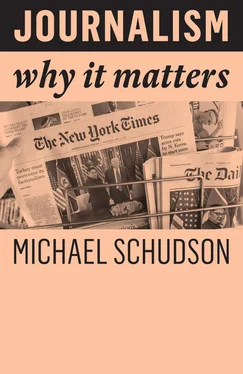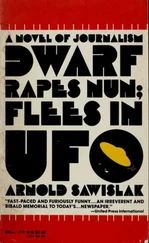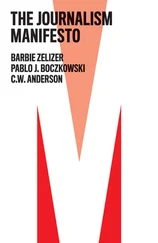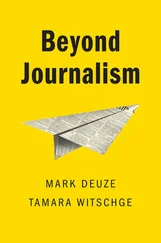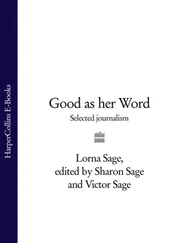A journalist’s job is to make news, as a carpenter’s job is to build houses. Both crafts have rules. The primary rule for journalists: put reality first. Responsible journalists learn to not produce fake news, hyped news, or corrupt news. They do not subordinate reality to ideological consistency or political advocacy. They do not curry favor with advertisers or with the publisher’s business interests, or even with the tastes of the audience. Nor should they bow to their own colleagues if the consensus in the newsroom clashes with what they see in the world around them. This – the bias of the inner circle – is especially difficult to resist. What remains true about ethical journalism is just what reporter (and novelist) John Hersey said about it in 1980: “There is one sacred rule of journalism: the writer must not invent. The legend on the license must read: NONE OF THIS WAS MADE UP.” 1
“None of this was made up” means that all of it is accurate and that, if called upon, the reporter can defend everything he or she has written as true, as accurate. This is the most boring thing we can say about a news story – “it is accurate.” But this is also quite possibly the most important thing that can be said. When Robert Pear, New York Times Washington, DC-based health care reporter, died in 2019, the Times printed a letter to the editor from Thomas S. Crane, a health care lawyer in Massachusetts, who remembered Pear’s “complete dedication to detail and fairness and his breadth of knowledge of the politics of the health care industry.” On one occasion when Pear asked him for some help on a story, Crane recalled, “We went round and round about a single sentence because of his compulsiveness for accuracy. After the third phone call that day, I finally persuaded him that the sentence was legally accurate and otherwise unassailable.” 2For a reporter, “a compulsiveness for accuracy” is very high praise.
A second rule for journalists is a good deal more complicated than it sounds: follow the story. Follow the story, don’t follow a wish, don’t hew to a line, don’t submit to a fashion, don’t go along with the crowd. Follow the story. To follow the story means that one cannot and should not anticipate where the story is going to go; one risks losing fidelity to reality if political, partisan, ideological preconceptions or loyalties block off the trail that may lead to “inconvenient truths,” facts and patterns of facts that show one’s favorite persons, parties, and causes in an unfavorable light.
Moreover, although Rule One – do the reporting, don’t make stuff up – and Rule Two – follow the story – are both primary directives for professional journalism, they are in tension with each other. Don’t make things up but do assemble the facts into a story that is not only coherent but also emotionally compelling. And that makes for a perennial battle between tedious, “eat your spinach” journalism and the stories that grab an audience and don’t let go.
For a century now, a powerful trend in the world of newspapers, carried over also into news magazines, radio, television, and online news, has been professionalization. Newspapers emerged and continued for generations before any of them hired reporters, but from roughly the 1820s on in the United States, and a bit later in Western Europe, reporting became the central task of journalism. A French journalist, after visiting America in 1886, held that “reporting is in the process of killing journalism” – that is, in US newspapers straightforward accounts of events of the day – particularly events of the past 24 hours – dominated while in France discursive essays of political advocacy, theory, and philosophy held sway. 3
But doesn’t a passion for factual reporting fly in the face of the truth that presumed “facts” are just opinions in masquerade? That everything is relative, it just depends on the standpoint you start from? Most college sophomores walk into Philosophy 1 believing that “it’s all relative.” That’s what makes them “sophomoric.” And none of them actually believes that everything is relative. If their computer malfunctions, they do not pray that it be fixed by divine intervention, nor do they normally kick the computer (unless empirical experience has taught them that that works well). What do they do? They seek expert assistance. They may look for it themselves online or they may contact tech support. They actually believe there is an answer and it’s not all relative. Some approaches will solve the problem and others will not. The computer works or it doesn’t. The milk smells spoiled or it smells fresh or sometimes you are not quite sure and you taste it for a second source of empirical evidence, adding taste to smell. You certainly do not conclude that it doesn’t matter because everything is relative and everything is positional and everything is subjective anyway so go ahead and serve the milk to your kids. We move through our lives figuring out what is real versus what is imagined, what is external reality versus what is a wish or a fear – every hour, every day.
What I will try to do in the pages to follow is to make a case for the utility of a professional journalism that seeks truth and chips away at it with a competent command of journalistic fact-gathering practices, turning documented facts into stories and analysis that engage an audience, and with an effort to assert itself rather than to defer to power.
In a reflective and illuminating recollection of his 20 years as editor in chief of the UK’s the Guardian , Alan Rusbridger writes a dramatic chapter on the efforts of a Parliamentary committee to pinion him, if not imprison him, for his newspaper’s publishing Edward Snowden’s revelations of America’s and Britain’s surveillance of their own citizens. And he concludes the chapter with a sentence that begins, “You need proper journalism because …” He leaves the sentence unfinished. He follows it with this: “But how did that sentence end? Because … we are independent of other forms of power? Because what we do is in the public interest? If we couldn’t agree on what the public interest looked like, how could we expect others to rally to that bedraggled cause?” 4Rusbridger’s unfinished sentence swings in the wind. This book is my effort to complete it.
1 1. John Hersey, “The Legend on the License,” Yale Review 70 (1980), 1–25 at 2 (1980).
2 2. Thomas S. Crane, Letter to the Editor, New York Times, May 9, 2019.
3 3. Cited in Marion Marzolf, “American ‘New Journalism’ Takes Root in Europe at End of 19th Century,” Journalism Quarterly 61 (1984), 529–36, 691 at 531.
4 4. Alan Rusbridger, Breaking News: The Remaking of Journalism and Why It Matters Now (New York: Farrar Straus Giroux, 2018), p. 335.
Конец ознакомительного фрагмента.
Текст предоставлен ООО «ЛитРес».
Прочитайте эту книгу целиком, на ЛитРес.
Безопасно оплатить книгу можно банковской картой Visa, MasterCard, Maestro, со счета мобильного телефона, с платежного терминала, в салоне МТС или Связной, через PayPal, WebMoney, Яндекс.Деньги, QIWI Кошелек, бонусными картами или другим удобным Вам способом.
